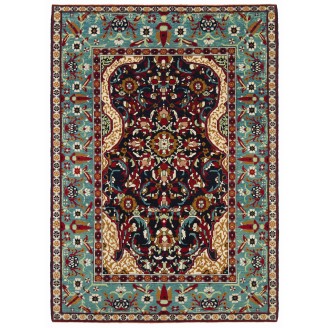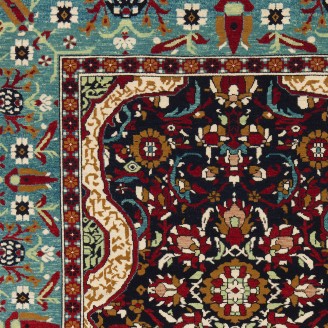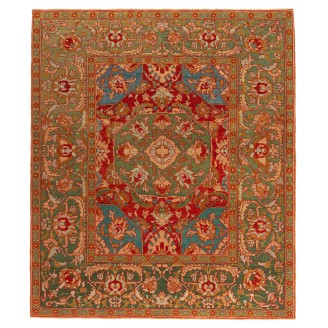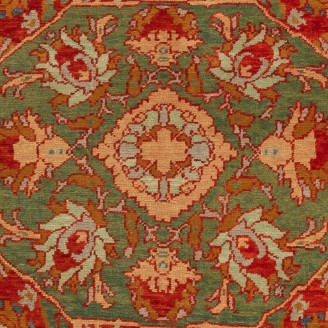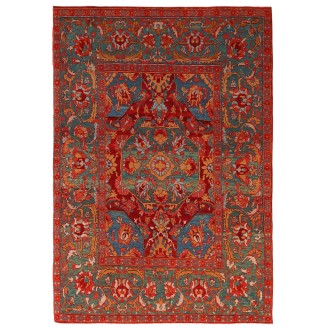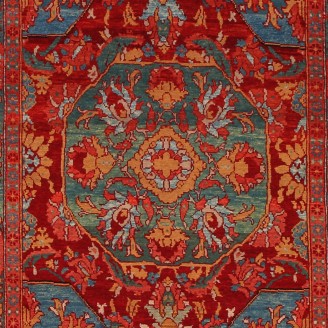Cairene Ottoman Carpet
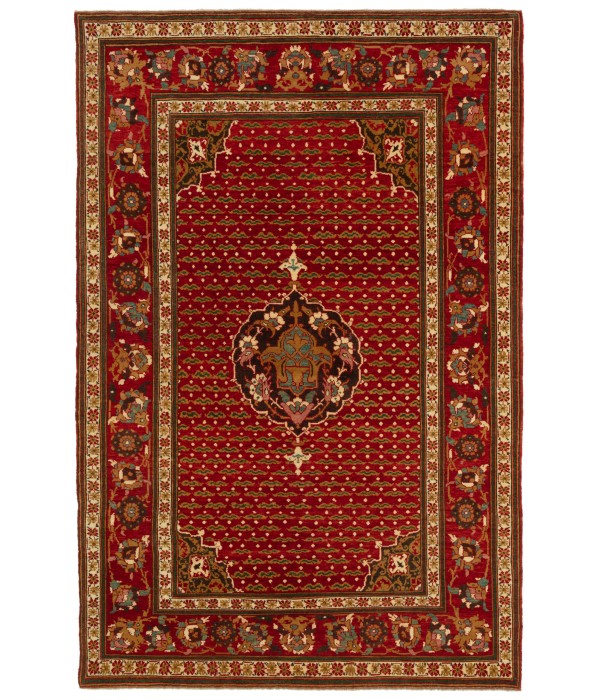
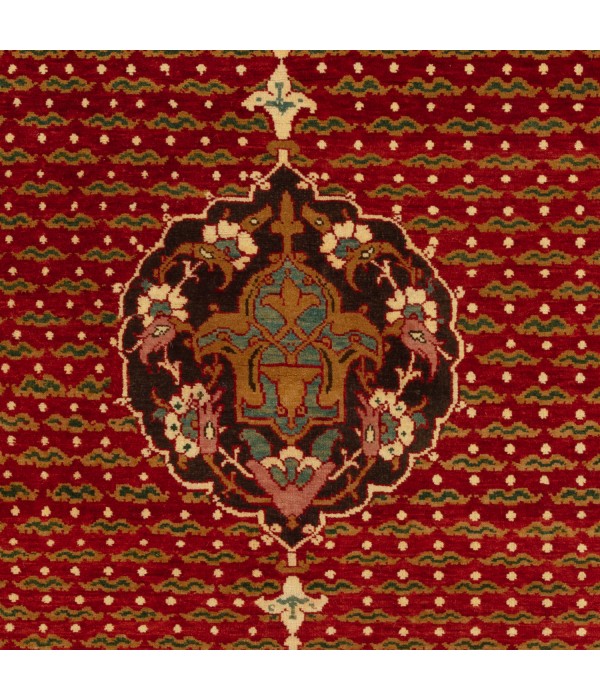
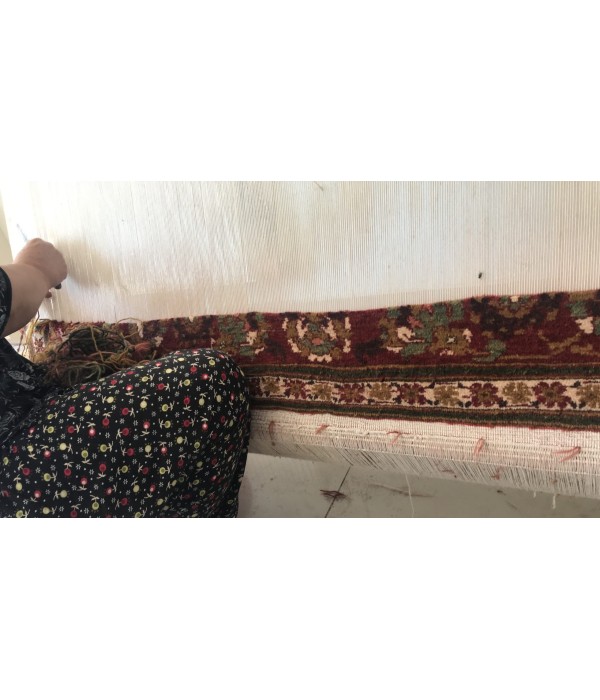
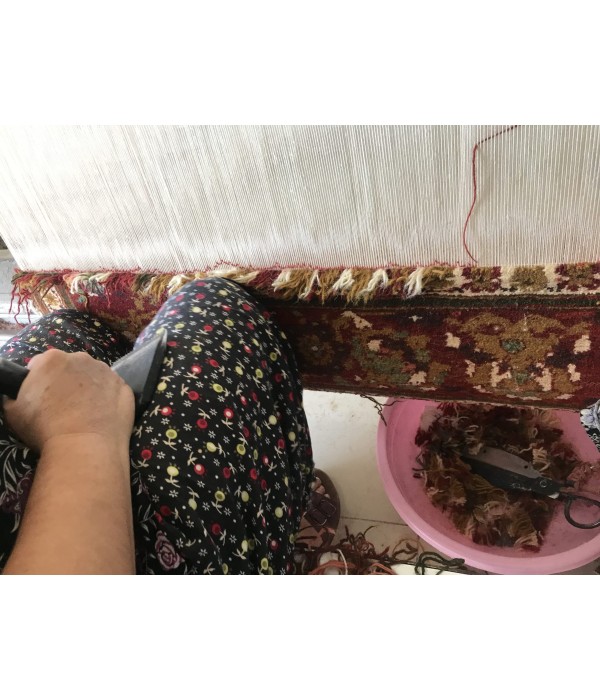
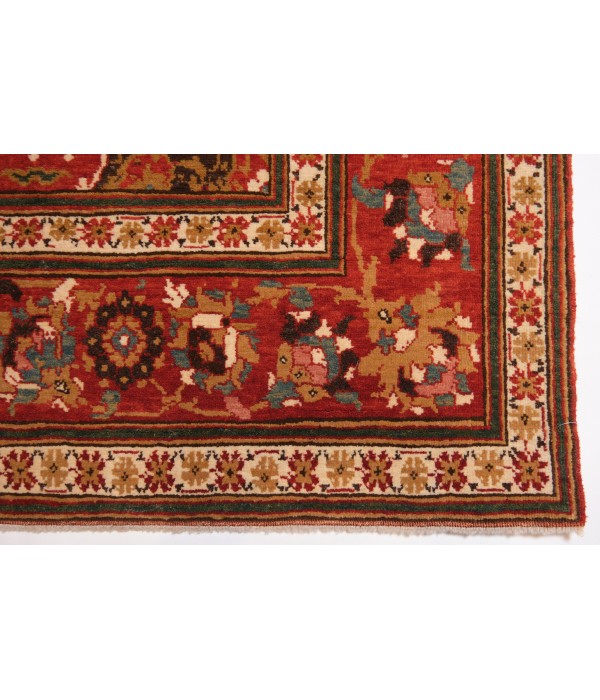
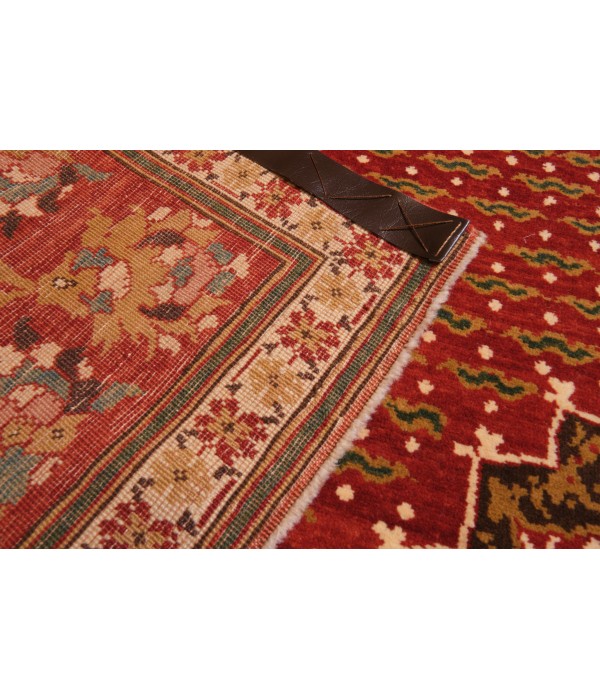
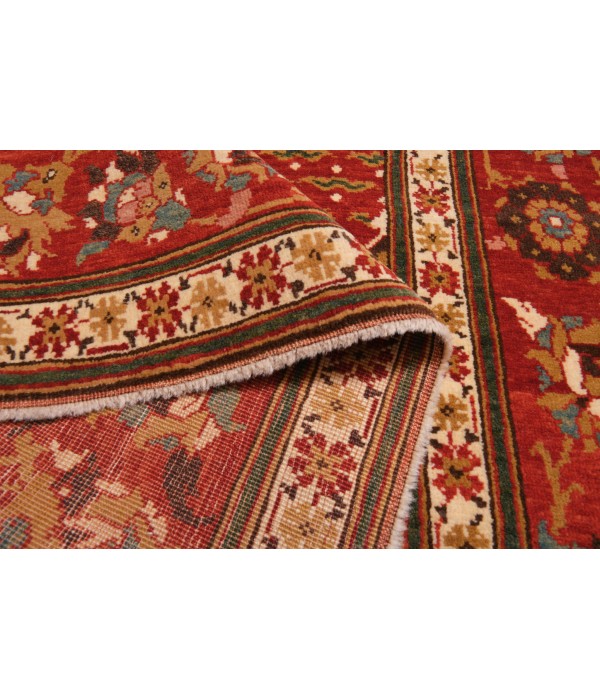
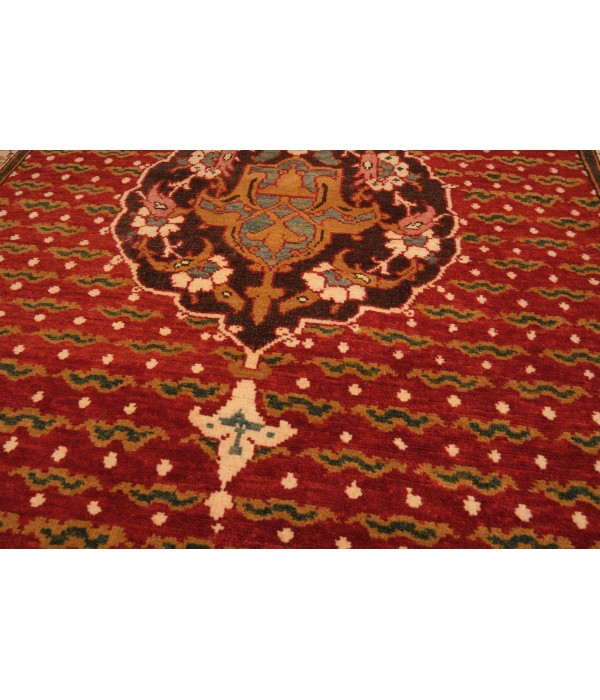
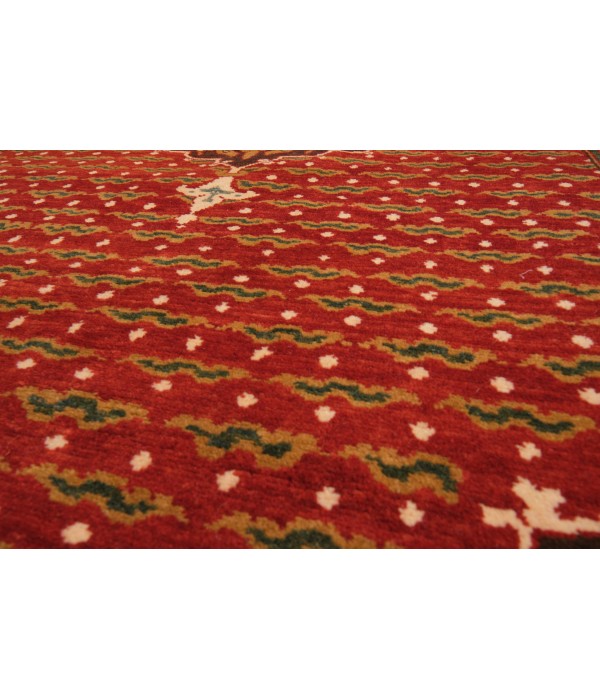
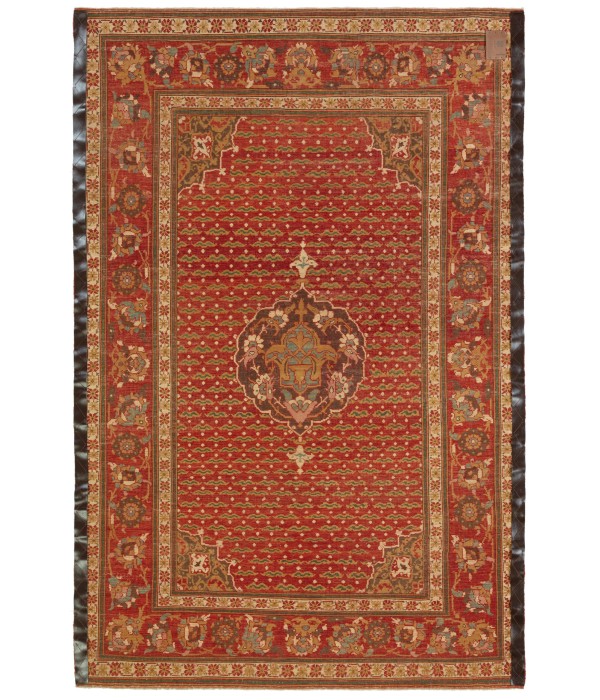
Out Of Stock
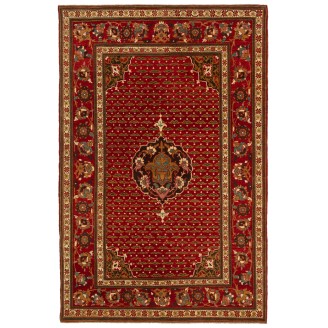
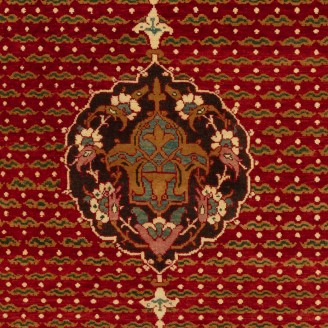
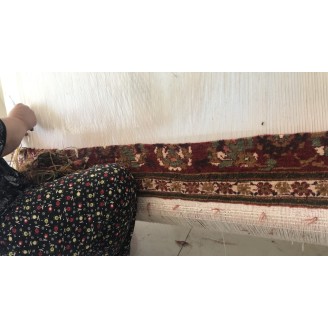
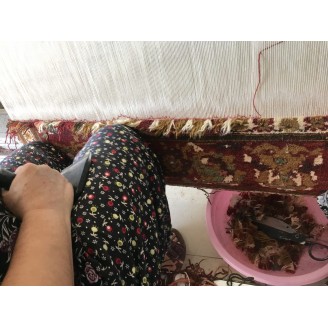
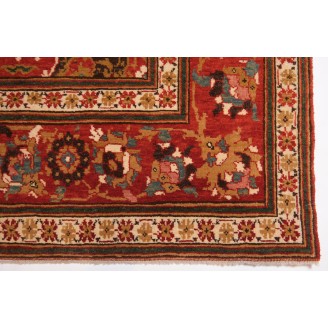
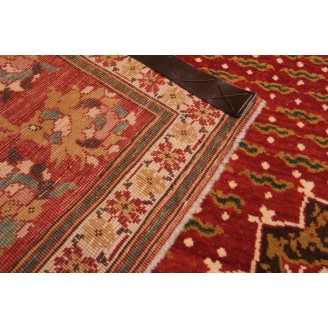
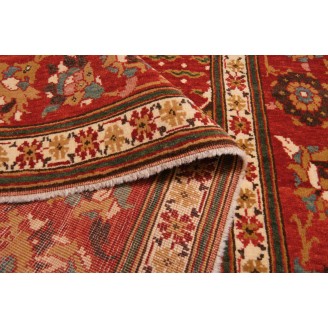
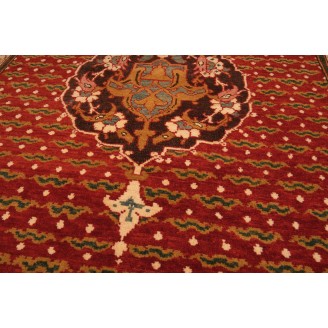
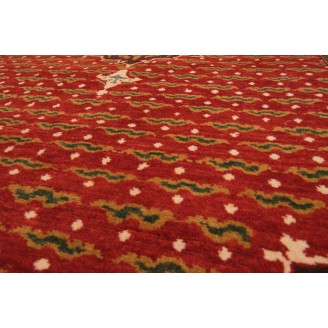
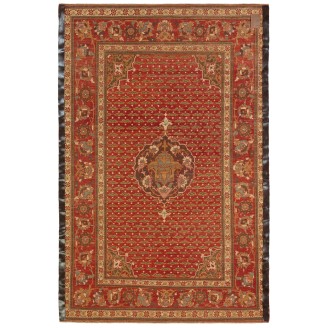
Model: ART00565Cairene Ottoman Carpet
Group: Islamic Rugs Family
Area: Mamluk
Material of Pile: Natural Dyed Hand-spun Wool
Material Warp / Weft: Wool on Wool
Structure: Symmetrical knot on depressed warp inclining to the right
Knots Density: 39x39
Pile (mm): 3
Production Place: ADIYAMAN BAHÇELİEVLER
Pattern Code: MK 1063 140X215 AR0235
Weight: 8.40kg
Location: Tokyo
Stock: Out Of Stock
Dimensions:
Turkish Court Manufactury Rugs were woven in the Egyptian workshops founded by Ottoman Empire in the 16th century. Those carpets were woven in Egypt, following the paper cartoons probably created in Istanbul and sent to Cairo at that time.The design source of the carpet comes from the book by McMullan, Joseph V., and Ernst J. Grube. Islamic Carpets. New York: Near Eastern Art Research Center, 1965. no. 6, pp. 36–37, ill. Shortly after its conquest by the Osmanli Turks (1517), a change of style was set in Egypt which, due to the establishment of a manufactory working for the court in Istanbul, found a powerful expression in the carpet industry. The Cairene Ottoman carpets correspond with those of the previous period both in material and in color range, and the palette is extended only through the more plentiful use of yellow, white, and a few other tints; occasionally, however, they were inclined to be satisfied with the three Cairene basic colors. Nevertheless, if there have been doubts expressed regarding the continuity of their production, these were based entirely upon the fact that the new rugs completely renounced the decorative orientation which had been observed up to that point. Vegetation which at times is naturalistic, stylized in a peculiar manner, is deployed luxuriantly and, in forms that are known to us from Turkish wall tiles and brocades, quite fills the field in endless continuation, interrupted by a large or a small medallion, quadrants of which are often repeated in the corners. Carnations, tulips, hyacinths, lilies, peonies, and other flowers, together with gracefully sweeping lancet leaves, sumptuous palmettes, and delicate sprays of blossoms, constitute the rich flora of these carpets, whose borders charm the eye with their elegant solutions for the corner problem. At the same time, in the guard stripes almost invariably little rosette flowers appear all in a row. It is merely by way of exception that we will still find appropriations levied upon the Mamluk tradition, while, on the other hand, the coming revolution in decor is already heralded in a few specimens which we still count as belonging to the earlier group. In pure folk art, such a radical overturn would be quite inconceivable, but then in the operation of a manufactory, the introduction of a completely novel program can be accomplished with a minimum of confusion. With this change of orientation, it was significant that the idea of a governing medallion, even if with a different conception, had already been put to use.This wool carpet presents a large border with repeating large blossoms, framing an extensive surface decorated with repeating chintamanis, the pearl-like spots that were popular in the Ottoman court. A circular medallion occupies the center, with a fleur-de-lis like motif at its top and bottom forming a vertical axis. The design of a central medallion and four corner quarter-medallions is thought to have originated in decorative book bindings. While displaying a Turkish design, the technique and materials of this carpet are actually Egyptian—reflecting the presence of Egyptian carpet weavers in sixteenth-century Ottoman workshops. A so-called ‘thunder-and-lightening’ symbol covers the entire field of this rug. Against this background appear a single, scalloped central medallion and four corner pieces. The borders are of special interest. The main border has a dual meandering scroll, one beset with rosettes, the other with palmette blossoms. The design of this carpet is interpreted and exact colors are chosen by our designers for this carpet.
Color summary: 8 colors in total;
Color summary: 8 colors in total;
- Imperial Red 415 (Madder Root)
- Sunray Color 405 (Henna)
- Natural Wool Color 320 (Specially Washed)
- Russian Green 418 (Henna - Indigo)
- Brown 551 (Madder Root -Quercus Infectoria)
- Natural Wool Color 37 (Specially Washed)
- Yellow Green 419 (Henna - Indigo)
- Melancholy 122 (Spurge - Madder Root)
Dimensions:
4 ft 7 in x 6 ft 11 in ( 140cm x 212cm )
Price:
$6,500
Ex Tax: $6,500

